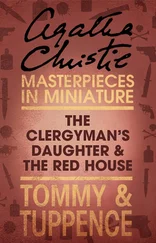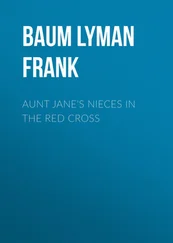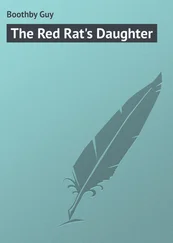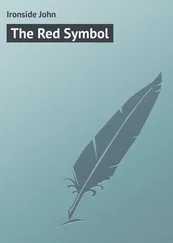You may choose not to look at me, I said . But I have loved Lyusia since I was sixteen years old.
Slowly the actress turned her head until our eyes met. Her gaze that was trained to penetrate hearts at the very back of the theater; up close, she possessed a force I was not prepared for.
Did your husbands know?
I’m trying to make you understand.
I understand I never saw you at Vorkuta. Or at Inta. Because you were never there, were you? You never visited him. Never wrote him. Not once in ten long years. Tucked away in your perfect complacency. Nice and protected. Celebrated, even. So tell me, Princess: Who are you now that your daddy’s just a fucking ghost? You’re nobody and nothing. Isn’t that right? You pathetic, poisoned bitch. You can’t touch what Lyusia and I have, and you know it. Don’t come near either of us ever again.
She walked away then—made her exit through falling snow. As I said, she was a professional. And of course she was right.
A minute passed, possibly more. I stood there unable to move, as if my feet were literally frozen to the ground.
Then a noise: the man under the Party sign, crushing the last centimeter of cigarette beneath his boot.
He raised his head and looked me square in the face. My shame between us.
You should go home, he said.
—
I returned to my life: Josef, Katya, my nurse, the four of us living together in our simple apartment on the Embankment. With my ability in English and my degrees, I was able to teach and translate. I took my mother’s name. It was Khrushchev’s country now: my father’s image began to disappear from the walls, if not the memories, of our people.
—
In 1962, my brother Vasily, after being released from prison, where over the previous years his mania and chronic inebriation had landed him repeatedly, died of heart failure. I wanted to mourn him, or at least to pity him, so cruelly distorted had he been by our father, but at this I cannot honestly say I ever succeeded.
In truth, however, in those grim days of drifting, it was not the state of my late brother’s orphaned soul that concerned me most, but my own.
One evening, under cover of darkness, I rode a bus out to the Moscow suburbs, to a little church next to the Donskoy Cathedral called Deposition of the Shroud. Father Nikolai Alexandrovich was waiting for me there.
In the USSR, of course, then as now, to convert to Christianity was an offense punishable by prison for all involved. And so on the night of my secret baptism Father Nikolai never recorded my name in the church registry. I can only assume that he took this risk because of who he knew I was. Yet he assured me—I hear his voice as I write this—Father Nikolai did, oh, he promised, that God loved me, even if I was the daughter of Josef Stalin.
—
Already in my thirties, I did not expect to fall in love again. But one day in the hallway of a state hospital, of all places, to which I’d been admitted for an emergency appendectomy, I met an Indian man nearly twice my age. Brajesh Singh was a Communist intellectual who had come to the Soviet Union to study our political system firsthand. Though not young or especially handsome or in good health—his heart and lungs were failing—Brajesh was a thoughtful, kind man who radiated an Eastern respect for all he encountered. We spent the long days of our convalescence together, discussing literature and old movies and the spiritual aspects of life (in this department, as in so many others, he would always be far wiser than I), and when the time came for my release, I realized that I did not want to part from him. I told him so, and we agreed that when he was well enough to leave the hospital he would move in with my family and me.
As it turned out, Brajesh would never be well enough again; he required an oxygen mask to breathe at night. But he moved in with us anyway, and they were happy months for our little family. In his very being, Brajesh brought a dignity and patience to our existence that I was incapable of producing on my own.
I had no idea how First Deputy Premier Kosygin got wind of our domestic arrangement, but one day I was summoned to the Kremlin. Kosygin’s office I knew well enough, because it had been my father’s; with that familiar portrait hanging there (one of the few places where one could reliably find his image still publicly displayed), our meeting had an ironic quality that was not lost on either the First Deputy Premier or myself. He immediately came to the point, which was to inform me that while the Party might tolerate my living with this Indian, as he put it, I must be aware that under no circumstance would I be allowed to marry him.
He is dying, I said.
Kosygin shrugged; of course he knew. The law is the law.
He has asked me to take his ashes back to his family in India when he dies. I’ve promised him I will.
We have your passport, Kosygin pointed out.
But the State is the State and its contradictions are its own. A few months later, after Brajesh had taken his last breath in our bed and his ashes had been returned to me in a small plastic container, there came a knock on the door of my apartment. It was Kosygin’s special courier, hand-delivering my passport so that I might personally return the distinguished foreigner’ s remains to his family in India—and thus remove his foreign presence, once and for all, from the Soviet Union.
—
One afternoon shortly before my departure—it would be my first trip outside the USSR, two weeks carefully stage-managed by the Kremlin—I was emerging from the GUM department store with my arms full of gifts for Brajesh’s family when I encountered Lyusia, whom I had not seen in over a decade.
We stared at each other in shocked, wary silence.
You’re looking well, he remarked, finally.
And you.
It was true. Like a beautifully carved, much handled pipe of burled wood, he had grown only more burnished and interesting with age.
My husband… I said.
I had no idea what led me to begin this embarrassing sentence, but once begun it was too late to stop.
Well, we were not allowed to marry . In any event, he died from an illness not long ago.
I’m sorry.
And you? Are you still married?
A nod, his expression fatalistic, raising his hands as though they belonged to someone else and so could not be judged any fault of his own.
What can I say? You know me.
Yes, I knew him.
A sudden wind gusted along the wide expanse of sidewalk then, forcing us to duck away to catch our breaths. Turning back, I was shocked and moved to see tears in his eyes.
Just the wind, he said quickly, dabbing at his eyes with the corner of his coat sleeve.
Lyusia…
He cut me off. Good to see you, Svetlana. I wish you happiness. Goodbye.
—
On the day I was to leave for India, a blizzard swept over Moscow. All afternoon and evening the snow continued to fall over the city, as I waited in our apartment with Josef and Katya, calling the airport every half hour to try to learn whether my 1:00 A.M. flight for Delhi would be allowed to take off. The news was shifting and contradictory, and I found the tension hard to manage. At one point Josef picked up my heavy suitcase to move it by the door, and I snapped at him to put it down. I apologized immediately for my harsh tone, explaining that unbeknownst to him, I had put the urn containing Brajesh’s ashes into the suitcase. But the damage had been done. On the eve of my departure, when we all would have wished to feel closest together as a family, my son turned remote from me. It was my fault.
Читать дальше












